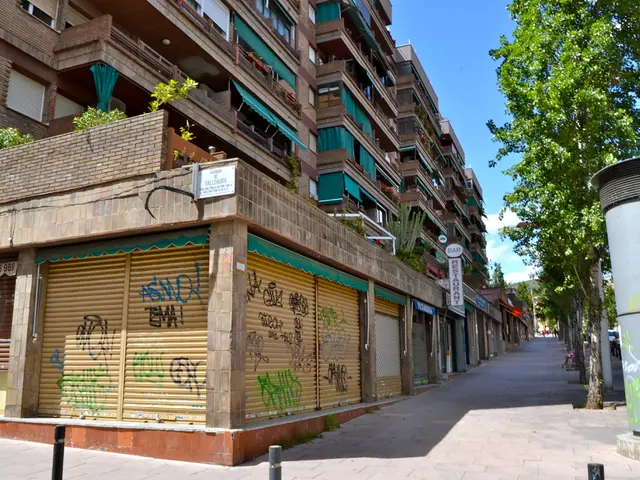Heating up in the Refugee Minister's Seat
Green Minister Josefine Paul of North Rhine-Westphalia is feeling the heat, following the devastating terror attack in Solingen that claimed three lives. The minister's handling of Dublin deportations before the incident is under scrutiny, with criticism pouring in from the opposition. State President Hendrik Wüst (CDU) has backed Paul, praising her for addressing the issue openly at a special state parliament session.
However, the President's approval isn't quelling the opposition's criticisms. They accuse Paul of overlooking the issue of numerous unfruitful Dublin deportations prior to the attack.
At the epicenter of the controversy is the Dublin system - a system that has been under fire for various reasons. Critics argue that its inefficiencies, coupled with an administrative burden, have resulted in a disproportionate burden on countries like Germany and Austria. Furthermore, the system's failure to distribute responsibilities equally has been a significant area of contention.
Gerald Knaus, an expert from the European Stability Initiative, hasn't held back his criticism, suggesting alternative methods like Safe Third Country Agreements and EU-Turkey Statement 2.0. The recent attack has highlighted the need for more effective deportation policies and a closer examination of asylum processes to prevent potential future tragedies.
Wüst promises transparency in finding and rectifying any errors. However, he points out that civil servants, already under pressure, should not be the ones to blame. Instead, he emphasizes finding the issue's root causes and prevents similar occurrences.
The opposition continues to lambast Paul over her handling of these matters as the investigation unfolds. It's becoming increasingly clear that a more efficient and equitable asylum system is necessary to tackle both administrative and security challenges.
The Dublin system, a framework for the return of asylum seekers to the first EU country where they submitted their claim, faces several challenges:
- The Dublin system places an unfair burden on border states like Greece and Italy, which have struggled with the influx of migrants.
- Prolonged processing times and backlogs plague the system, keeping many asylum seekers in limbo.
- Fundamental rights are thrown into question, particularly with the proposed Screening Regulation.
- The EU's new migration and asylum policies raise concerns about normalizing detention and refoulement.
- Solidarity payments and relocation have been met with criticism, especially in countries like Poland.
Proposed solutions include the Screening Regulation, solidarity payments, restricting benefits for Dublin refugees, enhancing processing capacity, and negotiating bilateral agreements between countries to manage asylum returns. Despite claims of improved efficiency, these solutions raise significant human rights concerns that must be addressed with care.








